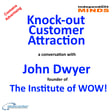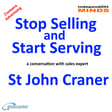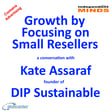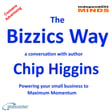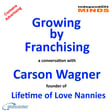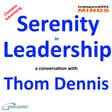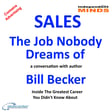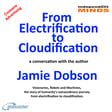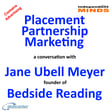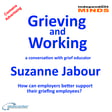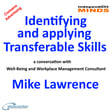
Evolution of an Entrepreneur – a conversation with Darryl Bates-Brownsword
At the time of recording Darryl Bates-Brownsword was the managing partner at Succession Plus UK. He is now Chief Growth Officer at Fabric, a consultancy that specialises in helping founders maximise the value of their business on exit.
In this episode of the Abeceder podcast The Independent Minds, Darryl explains to host Michael Millward how the role of an entrepreneur or business manager changes as their business changes and develops.
Darryl suggests that entrepreneurs need to look at their business in a way that more closely matches the priorities that a potential investor would have.
He discusses the different perspectives that different prospective types of investors have of a business.
Darryl describes the five aspects of looking at a business like a potential investor, and how the role of an entrepreneur changes as the business changes and develops.
Michael and Darryl also discuss the challenges that entrepreneurs face as they try to change their role as their business develops.
More information about Darryl Bates-Brownsword and Michael Millward is available at abeceder.
Audience Offers
The Independent Minds is made on Zencastr, because as the all-in-one podcasting platform, Zencastr really does make creating content so easy.
If you would like to try podcasting using Zencastr visit zencastr.com/pricing and use our offer code ABECEDER.
Travel
With discounted membership of the Ultimate Travel Club, you can travel anywhere else at trade prices on flights, hotels, trains, and many more travel related purchases.
Fit For Work Look after your health and you will be fit for work.
No point in being in a great job if you are in poor health. That is why we recommend The Annual Health Test from York Test; a 39-health marker Annual Health Test conducted by an experienced phlebotomist with hospital standard tests carried out in a UKAS-accredited and CQC-compliant laboratory.
A secure Personal Wellness Hub provides easy-to-understand results and lifestyle guidance
Visit York Test and use this discount code MIND25.
Visit Three for information about business and personal telecom solutions from Three, and the special offers available when you quote my referral code WPFNUQHU.
Being a Guest
We recommend the podcasting guest training programmes available from Work Place Learning Centre.
We use Matchmaker.fmto connect with potential guests If you are a podcaster looking for interesting guests or if you have something interesting to say Matchmaker.fm is where great guests and great hosts are matched and great podcasts are hatched. Use our offer code MILW10 for a discount on membership.
We appreciate every like, download, and subscriber.
Thank you for listening.
